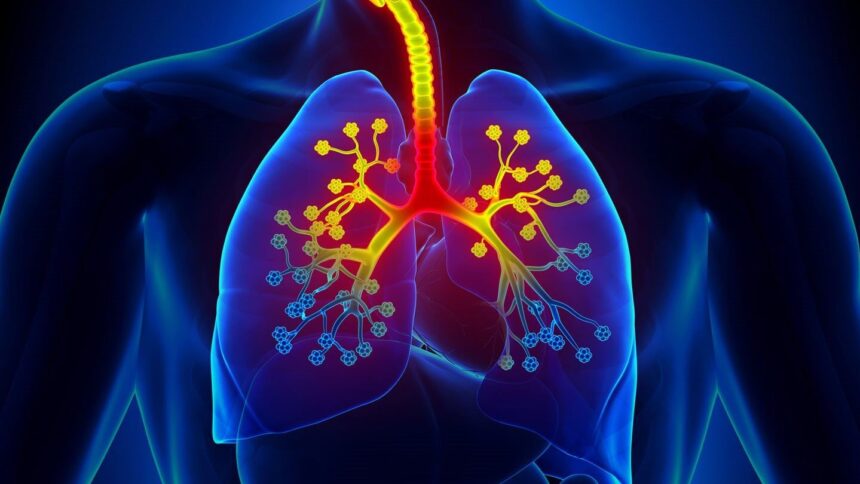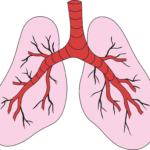Understanding Asthma: Symptoms, Causes, and Treatment Options
Asthma is a chronic respiratory disease that affects millions of people worldwide. It is a condition that causes the airways to narrow and become inflamed, making it difficult to breathe. While there is no cure for asthma, effective treatment can help people manage their symptoms and lead a normal life, Asthma : Causes, Symptoms, and Treatment Options.

In this blog, we will discuss the symptoms, causes, and treatment options for asthma, as well as some tips for managing the condition.
Symptoms of Asthma:
The most common symptoms of asthma include:
Wheezing:
A whistling sound when breathing that is often heard during exhaling.
Coughing:
A persistent cough that is worse at night or early in the morning.
Shortness of breath:
Difficulty breathing or feeling as if you can’t catch your breath.
Chest tightness:
A feeling of tightness or pressure in the chest.
These symptoms can be mild or severe, and they may occur frequently or only occasionally. Some people with asthma experience symptoms only during certain activities or when exposed to specific triggers, such as allergens or exercise.
Causes of Asthma:
The exact cause of asthma is unknown, but it is believed to be a combination of genetic and environmental factors. People with a family history of asthma or allergies are more likely to develop the condition. Other factors that can trigger asthma include:
Allergens:
Substances that can trigger an allergic reaction, such as pollen, dust mites, and pet dander.
Irritants:
Substances that can irritate the airways, such as cigarette smoke, air pollution, and chemicals.
Respiratory infections:
Viral infections, such as the common cold, can trigger asthma symptoms.
Exercise:
Physical activity can cause asthma symptoms in some people.
Emotional stress:
Stress and anxiety can also trigger asthma symptoms.
Treatment Options for Asthma:
There is no cure for asthma, but there are several treatment options available to help manage symptoms and prevent asthma attacks. These include:
Inhalers:
Inhalers are the most common form of treatment for asthma. They deliver medication directly to the lungs, which can help relieve symptoms and prevent asthma attacks.
Long-term control medications:
These medications are taken daily to help control inflammation and prevent symptoms.
Allergy medications:
These medications are used to treat allergies that can trigger asthma symptoms.
Immunotherapy:
Also known as allergy shots, immunotherapy can help reduce the body’s sensitivity to allergens over time.
Bronchodilators:
These medications relax the muscles around the airways, making it easier to breathe.
Lifestyle changes:
Making lifestyle changes can also help manage asthma symptoms. This includes avoiding triggers, maintaining a healthy weight, exercising regularly, and quitting smoking.
Emergency medications:
In severe cases, emergency medications such as epinephrine can be used to quickly relieve symptoms.
It is important to work closely with a healthcare professional to develop an asthma management plan that works best for you. This plan should include a detailed understanding of your triggers, medication regimen, and emergency protocols.
Managing Asthma:
In addition to medication, there are several things you can do to manage your asthma symptoms:
Avoid triggers:
Identify and avoid triggers that can cause asthma symptoms, such as allergens and irritants.
Keep track of symptoms:
Keep a diary of your symptoms and triggers to help you identify patterns and adjust your treatment plan accordingly.
Monitor lung function:
Regular monitoring of your lung function can help you and your healthcare professional track the effectiveness of your treatment plan.
Get vaccinated:
Make sure to get vaccinated against the flu and other respiratory illnesses to reduce the risk of asthma exacerbation.
Stay informed:
Stay up to date on the latest research and treatment options for asthma to make informed decisions about your care.
In conclusion, asthma is a chronic respiratory condition that affects millions of people worldwide. While there is no cure for asthma, effective treatment options are available to help manage symptoms and prevent asthma attacks. By working closely with a healthcare professional and making lifestyle changes, people with asthma can lead a normal life and reduce the impact of the condition on their daily activities.











